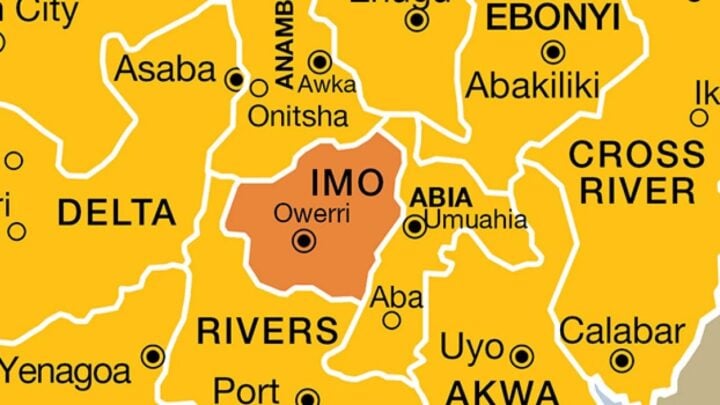Lagos, Ogun ranked highest in property price increases
A Real Estate firm, BuyLetLive has revealed that Lagos and Ogun states recorded the highest property price increases in 2024, with growth rates of 39.46 and 30.48 per cent, respectively.
The firm in its new report said the development marked a shift from 2023, when Oyo and Anambra led with increases of 29.89 per cent and 28.24 per cent. Among the eight states and the Federal Capital Territory tracked, six recorded higher growth in rental prices compared to sales, reflecting stronger demand for rental properties.
The report covers data from 2021 to 2024, providing a comprehensive analysis of the real estate market across all sectors in Nigeria, as well as the price growth in various states in the country.
The property firm disclosed that in terms of market performance, the residential sector emerged as the primary driver of growth, as demand for housing remained robust despite rising property prices and weakened purchasing power.
The report titled: “Property Price Index Report”, shows that inflation and rising development costs have pushed property prices higher in location like Lagos as developers work to maintain profitability; short-let apartments recorded the most notable growth, with prices surging from 12.95 per cent in 2023 to 46.40 per cent in 2024, reflecting an increase of over 200 per cent.
The report also noted that the residential real estate sector continues to attract more investors than other sectors in Lagos while over the past year; millennials emerged as the primary demand drivers in the Lagos rental market, while baby boomers dominated sales transactions.
It said, “Ogun continues to experience steady growth in industrial development, which bolsters its economic appeal. The Nigerian National Petroleum Company Limited (NNPCL) is set to commence oil and gas exploration in Ogun, a move poised to attract investment and drive real estate development in the state by creating demand for residential and commercial properties near industrial hubs. Low purchasing power significantly slowed the real estate market in Ogun in 2023, impacting property prices and reducing overall activity.”
According to the research, Abuja, which is Nigeria’s political and economic centre, witnessed increasing demand for both residential and commercial real estate. This growth, it noted, is driven by rapid urbanisation and a thriving economy, making Abuja a key market for property investment.
“The Abuja property market recorded strong growth in rental and sales segments. Rental apartment prices surged significantly, with a 99.8 per cent increase in 2024. Short-let apartments experienced the slowest price growth in 2024, marking a shift from their top growth performance in 2023.
The Federal Government initiated road construction projects to enhance Abuja’s infrastructure. Maitama saw a growth in sales price in properties.”
The top challenge identified by key players in the industry is the lack of access to financing, followed closely by government-induced bottlenecks. These constraints, it said, significantly hinder the ability of potential buyers, developers, and investors to actively participate in the market, thereby impeding overall industry growth.
Key players in the market anticipate that the most significant growth opportunities in the Nigerian real estate sector will be in the affordable housing segment. The insight reflects the increasing demand for affordable housing as a critical area for both developers and investors. As a result, private investors and the government are focusing more on this sector, recognising it as a key driver for long-term growth and economic stability in the real estate market.
The Chief Executive Officer, BuyLetLive’s Nigeria Property, Gbenga Osowe, said the report noticed a shift in demand patterns within the residential property market, adding that the volatile economic environment has led to a sharp increase in the cost of building materials, resulting in higher property prices.
This surge, coupled with reduced affordability, he said, has prompted prospective buyers and renters to adjust their preferences, focusing on smaller, more affordable units or properties in less expensive locations.
Also speaking, the firm’s Research Analyst, Damilohun Oke, said the report noticed a rise in demand for affordable housing, a trend that materialised as the government initiated the construction of affordable housing projects across various states under the ‘Renewed Hope Project.’ However, despite this positive development, broader economic challenges hindered progress in other areas.
She said, “We anticipated increased funding in the proptech sector, but the economic instability and declining investor confidence led to a different outcome. Global venture funding fell to $67 billion, representing a 15 per cent decline in value and a 30 per cent reduction in deal volume compared to the same period in 2023.
“A notable shift occurred in the type of housing being sought, reflecting evolving consumer preferences. Domestically, volatility in the exchange rate, fluctuating inflation, and surging fuel prices drove up property costs, slowing activity in Nigeria’s real estate and construction sector. Consequently, the sector’s contribution to GDP,”
Oke said a major challenge developers face is the steep rise in building material prices. Materials such as cement, steel, roofing sheets, and tiles have seen sharp price hikes, fueled by factors like inflation, currency devaluation, and disruptions in global supply chains.
“The naira’s weakened exchange rate has significantly increased the cost of imported materials, while high energy prices and logistical challenges have further escalated local production costs. These rising expenses have caused construction delays and pushed property prices higher, straining affordability for both developers and buyers.”












